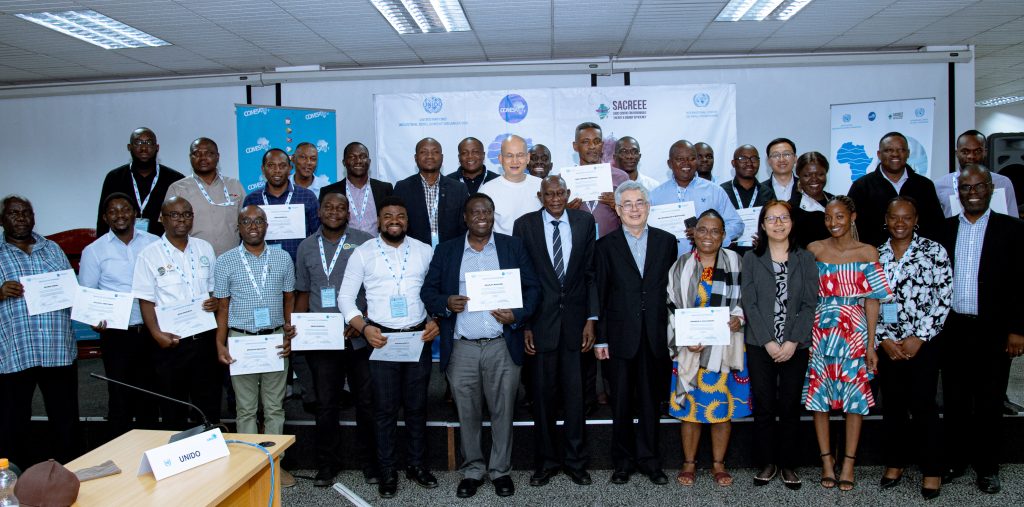
COMESA working with partner Regional Economic Communities and the United Nations Industrial Development Organisation (UNIDO) have conducted a one-week training to boost the capacity of technical experts and small hydropower developers as a way of helping millions access affordable electricity.
The training conducted at COMESA Secretariat in Lusaka is seen as a crucial step towards building the capacities of the experts, standards bureaus and project developers for effective and efficient planning, management and operationalisation of Small Hydropower based on the technical guidelines.
Speaking at the opening ceremony of the training session on Monday 22 January 2024, Director of Infrastructure and Logistics at COMESA Secretariat Dr Bernard Dzawanda said access to energy remains a critical challenge in the region with many citizens lacking reliable and affordable electricity.
“The region has a population of around 600 million people, with a high demand for energy, particularly electricity. However, the energy sector in many of our member countries is still underdeveloped and underfunded, leading to low levels of electricity and unreliable energy supply,” Dr Dzawanda said.
He added that the electricity access rate in the COMESA region is around 60%, meaning that almost half of the population do not have access to electricity.
The experts stated that the region has enormous unexploited natural resources required for the development of the power sector. The region’s natural energy resources are plentiful and diverse, ranging from the vast solar and wind resources that are present in all Member States. In addition, the region has significant geothermal energy along the East African Rift countries namely Djibouti, Ethiopia and Kenya while abundant hydropower resources are available in the Democratic Republic of Congo, Ethiopia and Zambia.
Dr Dzawanda revealed that the under-developed regulatory frameworks and the absence of a framework for monitoring progress complicates implementation modalities and inhibits decisions on electricity infrastructure projects.
In recognition of these challenges, COMESA has prioritised the development of regional energy infrastructure aimed at increasing energy access and ensuring reliable, affordable and sustainable modern energy services. A number of specialised institutions have been established such as the Regional Association of Energy Regulators for Eastern and Southern Africa (RAERESA) and the Eastern Africa Power Pool. COMESA has also developed and adopted the COMESA Model Energy Policy Framework which has introduced reforms in the energy sector.
Acting Permanent Secretary in Zambia’s Ministry of Energy Mr Mwape Chipala said hydropower projects can become important drivers of sustainable economic growth in Africa and it is also cleaner than some other technologies and more predictable than solar or wind and can be used for complimentary activities such as irrigation and flood control.
UNIDO Senior Technical Expert Mr LIU Heng pledged the UN’s support for countries to transform the access to energy.
“UNIDO stands with you. UNIDO will be a platform for technology and knowledge transfer, innovation and investments for Small Hydropower. We work with Member States to help them realise their energy and climate ambitions”.
Key partners to the international training included the International Centre on Small Hydro Power (ICSHP) and the Southern African Centre for Renewable Energy and Energy Efficiency (SACREE).

